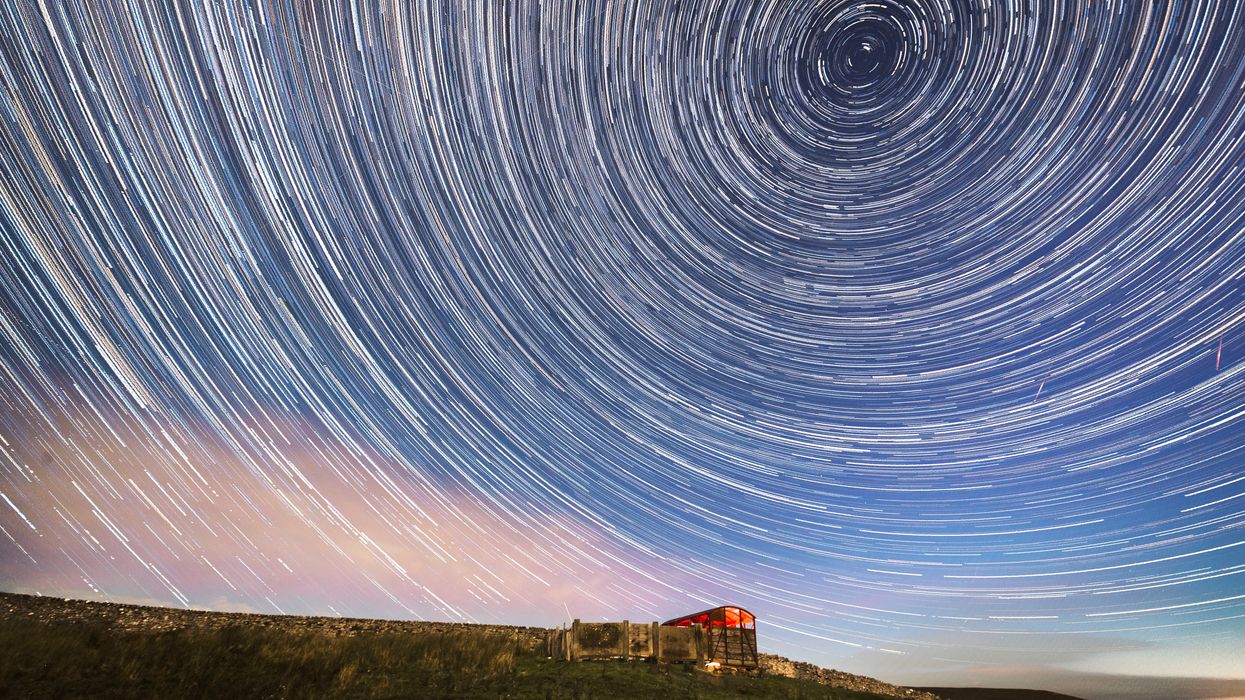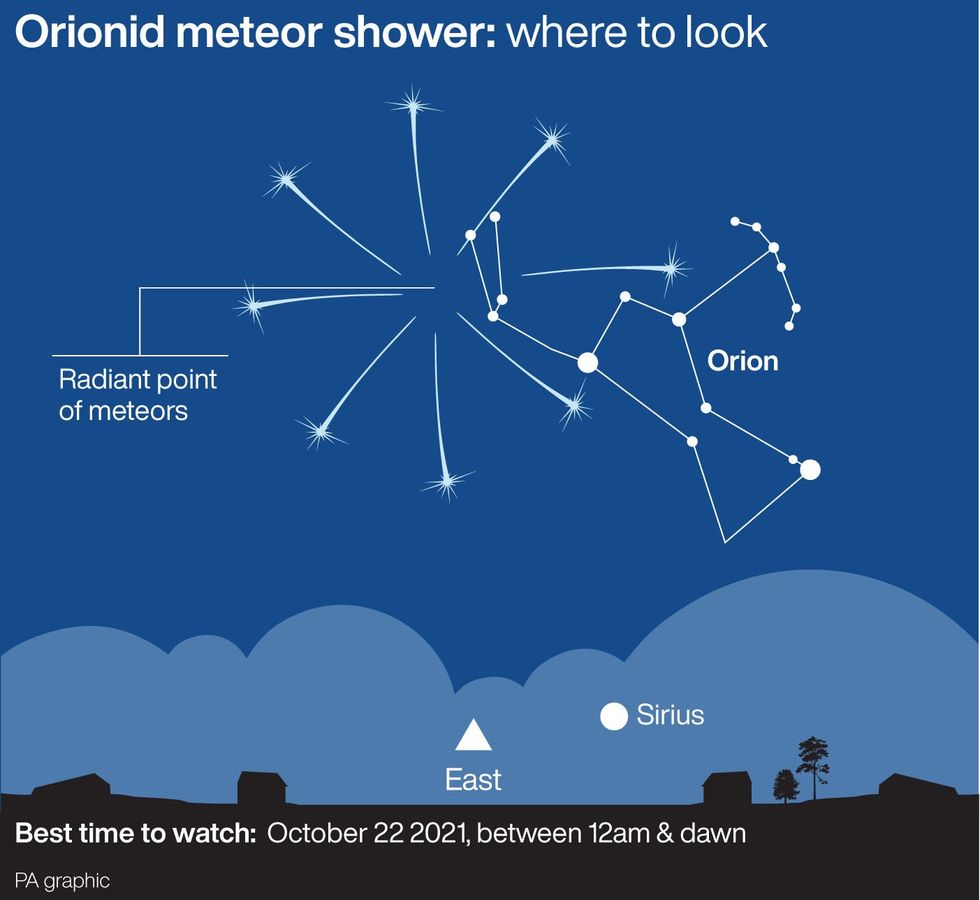
The sky is set to be illuminated by shooting stars as the Earth passes through the debris left by Halley’s Comet.
But stargazers may be denied the full sight as a full moon threatens to obscure the light of all but the brightest meteors.
The Orionid meteor shower is active throughout October but is expected to peak on Friday between midnight and dawn, with around 20 meteors per hour under ideal conditions.
Dr Greg Brown, astronomer at the Royal Observatory Greenwich told the PA news agency there will be “reasonable rates” of meteors on the nights before and after this.
He added: “One of two showers produced by Halley’s Comet, this is only a moderate shower with around 20 meteors per hour under ideal conditions.
“Unfortunately, with the full moon in the sky throughout the night, even if the weather is good it may be tough to see all but the brightest handful of meteors, with the rest hiding in the moonlight.”
Some people consider the shower to be extra special as the meteors are pieces of Comet 1P/Halley, famously known as Halley’s Comet.
The comet swings by the Earth only once every 75-76 years but this annual shower provides some compensation for those who may miss that once-in-a-lifetime event.
As the comet follows its path around the sun, it leaves behind a trail of tiny debris.
This enters Earth’s atmosphere at speeds of around 41 miles per second, causing the streaks of light we call meteors as it vaporises from friction with the air.
Dr Brown added: “To give yourself the best chance to see some, wait for the early hours of the morning, then head to somewhere with few city lights and preferably a low horizon.
“Try to fill your view with as much of the sky as possible – lying on the ground or taking a deckchair with you can make this far more comfortable for longer periods of time.
“Then, simply stare at the sky.
“Neither a telescope nor a pair of binoculars will help you with these, as meteor showers are best viewed with just the unaided eye.
“Once your eyes have adapted to the dark, it should only be a matter of time before you see some.”














